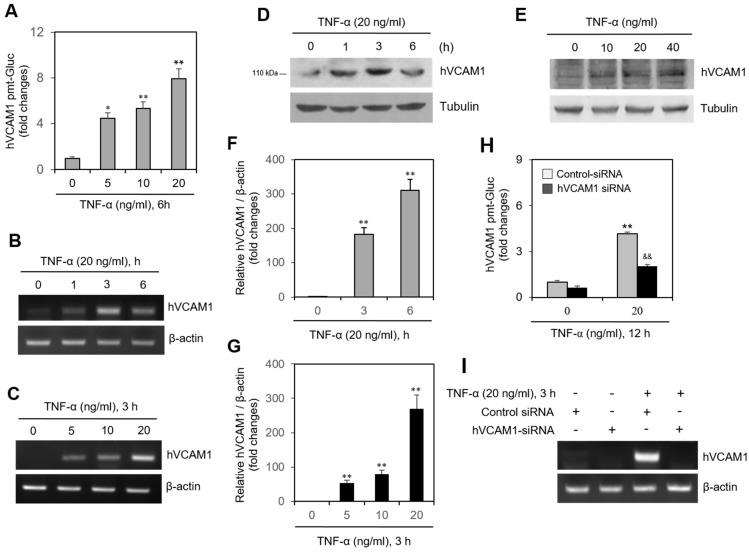Figure 2.
TNF-α increased human vascular cell adhesion molecule-1 (hVCAM1) expression. (A) MH7A cells were transfected with pEZx-PG02-hVCAM1-gaussia luciferase (Gluc) plasmid DNA using polyethylenimine (PEI), and treated with various concentrations of TNF-α. Gluc activity was measured by using luminometer. (B–G) MH7A cells treated with 20 ng/mL TNF-α for various times (B,D,F). hVCAM1 expression was detected by RT-PCR (B,C) or real-time Q-PCR (F,G). Cell lysates were prepared and hVCAM1 protein level was detected by western blot analysis (D,E). (H,I) MH7A cells were transfected with control or hVCAM1-siRNA to knockdown hVCAM1 expression by using Lipofectamine®. Then, cells were transfected with pEZx-PG02-hVCAM1-Gluc plasmid DNA by using PEI, and treated with 20 ng/mL TNF-α. Gluc activity was measured by using luminometer (H). RNA was purified with Nucleozol®. hVCAM1 expression was detected by RT-PCR (I). Each experiment was performed at least four times. Data in a bar graphs represent the means ± SD. * p < 0.05, ** p < 0.01; significantly different from TNF-α-untreated (A,F,G). or control siRNA-treated and TNF-α-untreated (H) control group. && p < 0.01; significantly different from control siRNA-treated and TNF-α-treated control group (H).

